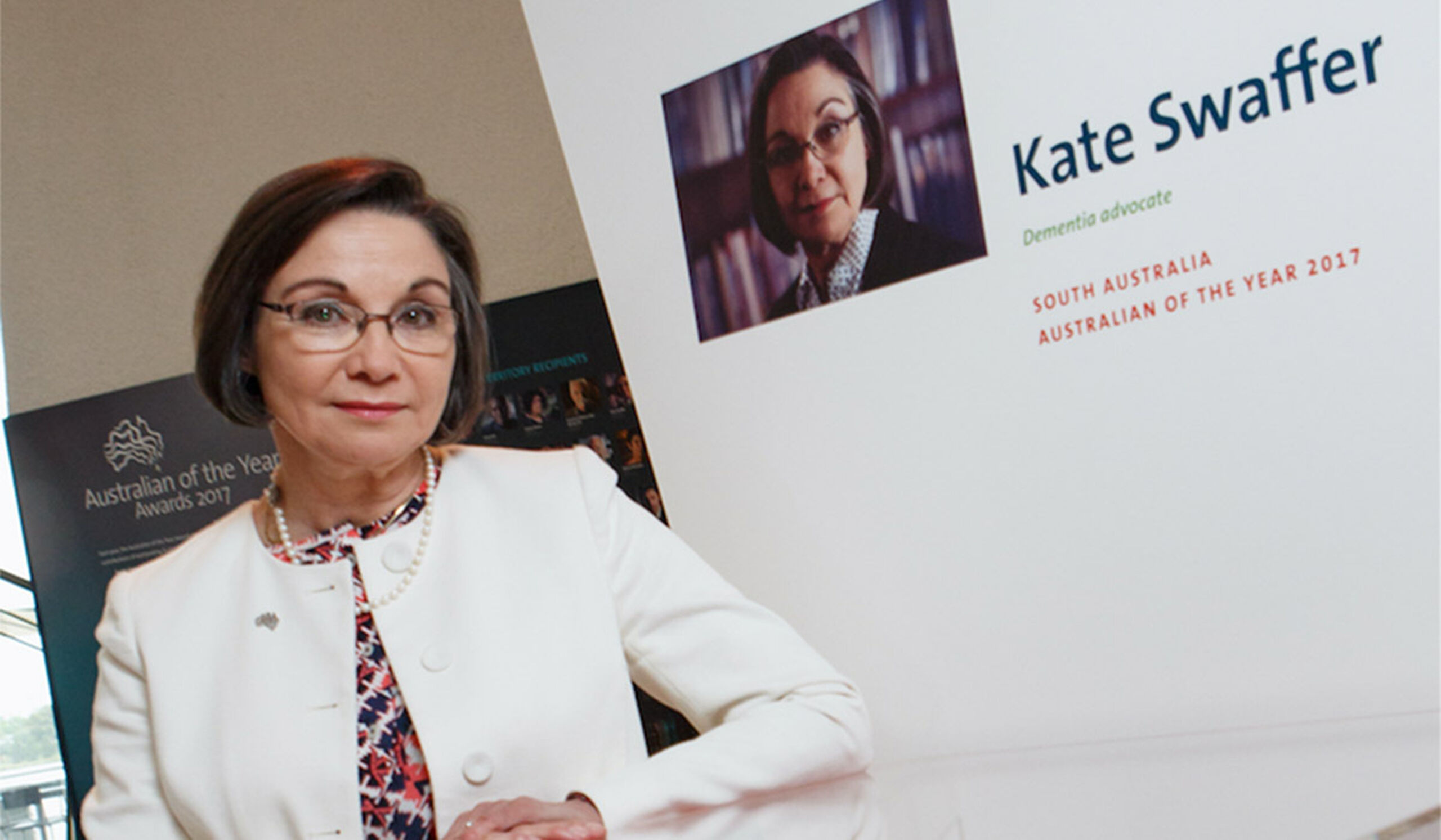15 November 2018
News
| Aged Care Homes
Baptistcare was delighted to present humanitarian, author and activist Kate Swaffer to share her remarkable personal story and insight into how she is redefining the way the world views dementia.
Speaking to an audience of invited guests on 12 December at Visibility’s Perron Centre, Ms Swaffer’s powerful words challenged misconceptions about dementia and encouraged attendees to revaluate how we, as a society, can better support and empower people living with the disease.
Ms Swaffer was only 49 when she was diagnosed with a rare type of younger onset dementia and advised by her health care professionals to get her end of life affairs in order and give up work and study. At the time she was leading a busy life, working fulltime and studying at university while raising her two teenage sons. It baffled her that she was being told to give everything up and put her entire life on hold.
“Dementia is the only illness I know where people are told to go home and prepare to die rather than fight for their lives.”
“People forget that you’re still a person, that you can still do things. It was just illogical to me that I would go from diagnosis to end stage overnight,” she said.
Ms Swaffer’s determination to continue to live a fulfilling life despite being handed a fatalistic view of her future has given her a strong purpose and passion and she now spends her time traveling the world advocating for a human rights approach to dementia. In 2014 she co-founded Dementia Alliance International, a non-profit organisation committed to representing and improving the quality of life for the 50 million people worldwide who have been diagnosed with the disease.
“I spend a lot of time encouraging other people with dementia to stand up and reclaim their pre-diagnosis lives and become self-advocates,” she said.
Ms Swaffer’s words highlighted the importance of not taking away the individual autonomy of people living with dementia and she warned of the dangers associated with promoting early dependence on families and the health sector.
“There is a systemic and gross underestimation of the capacity of all people with dementia even in the later stages of the disease.”
“When you are diagnosed with dementia everyone takes over from you which only disables you further and teaches you to become helpless. It’s at that point people just give up. It’s pretty easy to when everyone’s telling you to.”
“Let us fight and strive to maintain function for as long as possible,” she said.
Ms Swaffer is a shining example of how an individual can continue to live a positive and meaningful life beyond their dementia diagnosis.
“I see the way I’ve chosen to tackle dementia as the Olympics of my life.”
“Once I learned to focus on what I can still do and see the positives, my life is richer for it,” she said.
Click here for more information about dementia care at BaptistCare.
